I know that Summertime isn’t exactly here, at least not in my part of the world, but temperatures are rising, Spring has arrived and soon we’ll be longing for a good dive. So whether you’re planning to refresh yourself at a swimming pool, at the beach or even both I want you to protect your hair from the harmful effects that chlorine and salt water have on it. Although it might be a bit too early for some, for others this information might come at the right time. It’s better to prevent and protect your hair from damage than trying to salvage it after the damage has been done. When transitioning to natural hair the relaxed hair is weaker at the line of demarcation and the effects that chlorine and salt water can have on it can be disastrous.
Effects Of Chlorine and Salt Water In Your Hair?
Chlorine is a chemical that is frequently used to kill bacteria and microbes in swimming pools, such as E.Coli, and this is a good thing trust me! We don’t want to dive into a “sea” of potential diseases! On the other side, the bad thing about chlorine is that it reacts with the proteins in our hair and skin and binds with them. I’m sure you’ve noticed that a simple water rinse/shower is not enough to take the smell of chlorine off of you, you need to use something that can break this bond such as a clarifying shampoo.

Sadly, the smell of chlorine is not the only problem. If this was the case we could handle it. The big problem is that when chlorine binds with the proteins in our hair, changes its structure and giving rise to an array of problems: it opens the cuticles layers of the hair increasing tangles, it strips the hair of natural oils, it leaves the hair dry and it can increase porosity and breakage. Definitely, not a good thing to have in your hair.
We all want hair that is bouncy, elastic and shiny which is synonymous with well moisturised hair. Moisture is nothing more than water. However, salt water takes out all the water from hair leaving it thirsty, dehydrated. Your hair will look dry, dull, straw-like, without shine and frizzy.
The damaging effects of chlorine and salt water in hair can be even bigger if your hair is bleached, relaxed, coloured, fine, porous (high), dry and already damaged. You can understand how important it is to protect our frail transitioning hair which is a mixture of old relaxed hair and new hair that is naturally dry.
Preventing and Diminishing Harmful Effects
- Wet hair before going into the water – much like a sponge hair can only absorb a certain amount of water. If you drench your hair with H2O it won’t be able to take in much of the chlorinated or salt water.
- Apply some conditioner – This is an optional step, but I like the extra protection working as a barrier and making it difficult for chlorine and salt water to get in the hair and becoming dry. You can use any conditioner or one that has silicones as it creates a protective film. However, with this last option, you’d need to use a regular shampoo afterwards to remove the silicones. Warning! Don’t go overboard and apply tons of conditioner. It’s just a little! You don’t wanna be the girl in the pool that leaves a product stain in the water. If you’re afraid of this, skip it.
- Wear protective hairstyles – If you wear your hair loose it will easily get tangled because of the opened cuticle layers. When used in a protective style your hair is tightly “packed” together making harder for chlorine and salt water to get in. You can also wear a swim cap (especially if you’re an athlete or frequent swimmer) it’s not very attractive and doesn’t fully protect, but we need all the help we can get and it works as an extra obstacle.
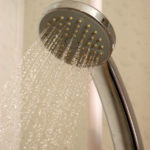
- When exiting pool or ocean always rinse your hair – Rinsing your hair thoroughly will help to remove some of the chlorine that didn’t bind to the hair and salt water because of the preventive measures highlighted previously. If you’re at a recreational pool or at the beach and you have a shower near, use it frequently or every time you exit the water. If not, I always like to carry a bottle of water with me when I’m at the beach. 😉
- Wash your hair after swimming – Avoid letting your hair dry with chlorine and salt water in it. For most people, a simple shampoo or low-poo shampoo will do. Those that frequently use swimming pools might need to use a clarifying/chelating shampoo. You can read this post for some suggestions: 3 Hair Care Solutions After Swimming. Some people will use a natural solution like an apple cider vinegar rinse (one part vinegar to four parts of water), they report that if the hair feels somewhat slimy it means it’s working (it’s meant to be done before washing). Is it fact or fiction?! I don’t know, I’d use the shampoo. 🙂
- Don’t skip the deep conditioner – Make this a weekly habit, especially if you frequently swim. Deep conditioners have emollients, vitamins and hydrolysed proteins that will balance the moisture and protein needs of your hair after it has been depleted by chlorine and salt water. Check my Curly Guide to Deep Conditioning.
- Use a leave-in and/or moisturising cream – Do this after you’ve washed and deep conditioned your hair, it will provide moisture as well as other essential benefits from humectants, vitamins and oils.
These actions will protect your hair from the destructive effects of chlorine and salt water in your hair. If you follow these measures you will be able to freely enjoy diving in the swimming pool or beach free of worry and guilt knowing that you’re taking care of your hair.

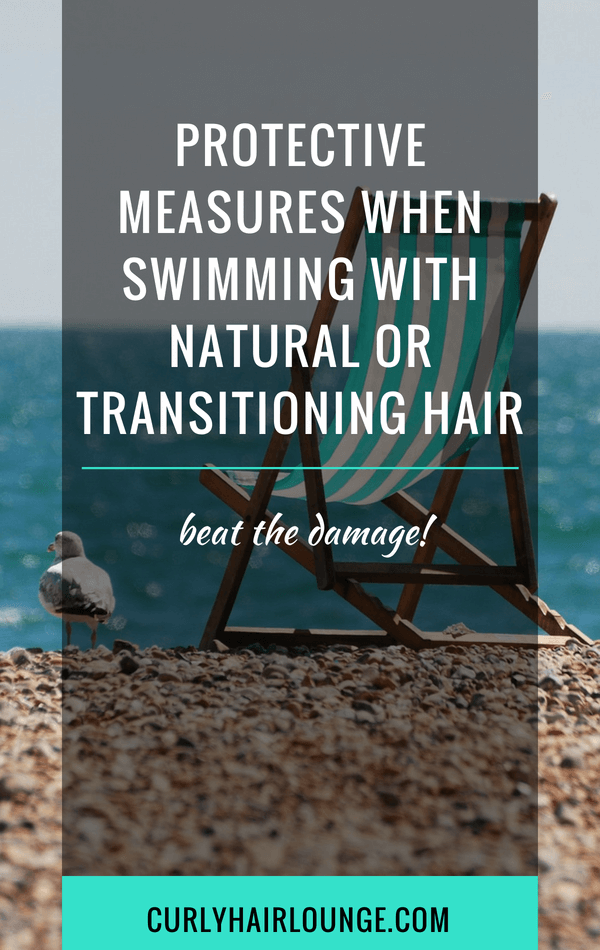
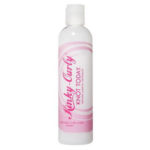
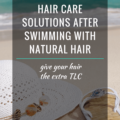
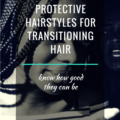
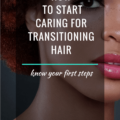
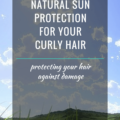

4 thoughts on “Protective Measure When Swimming With Natural Or Transitioning Hair”
This is excellent advice for all hair types. I always use a special leave-in conditioner designed for the beach before I swim as it has UV protection. My hair is coloured and I don’t want it to fade.
Hello Ballerine. Yes, always keep your hair protected. Nice job.
As a guy, I don’t do much for my hair but… I have a majestic beard that i’m proud of. You can be sure I will protect theses whiskers from the sun this summer 😛
Great article!
Hello Maxime! Hey all hair is hair, isn’t?! Ahahah. If you love then gotta protect those whiskers.